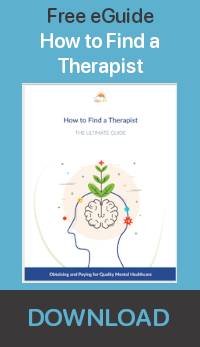Asking for Help During Coronavirus
There’s no shame in asking for help, and many, many people will need it at one time or another. Don’t hesitate to reach out. We all have to get through this together.
Financial or food assistance
- In the US, call 211 or visit 211.org to find food assistance, as well as other forms of aid.
- Consider finding your local United Way, which may offer financial assistance.
- Your town website may also offer resources.
- Learn about the Stimulus Payments from the US Federal Government
- Contact your utility companies and lenders to request payment arrangements and other options.
- Check with your state government for unemployment benefits.
Check for a Mutual Aid network in your community
A Mutual Aid group tracks volunteers in a local area willing to run errands or help others in need, and connects them with people who need support.
- Check this Mutual Aid resource or this one to see if a network is already established in your area.
- There may also be Facebook groups in your area where people are offering help.
Peer support websites
- NAMI Discussion Groups These discussion boards are maintained by the National Alliance on Mental Illness. They’re designed to provide users a safe space to express themselves and their challenges, and receive support from other users.
- Elevatr This is a smartphone app designed to create a safe space to express issues and challenges relating to mental health, for both those struggling with mental health challenges and those supporting them in their struggles.
- Depression and Bi-polar Support Alliance Groups. Facilitated groups to share experiences, discuss coping skills, and offer each other hope.
Hotline numbers for crisis support
Help is always available. If you’re feeling alone and struggling, you can reach out to these resources.
- 1-800-985-5990
- Text: TalkWithUs to 66-746
- Deaf/hard of hearing: 1-800-846-8517
National Suicide Prevention Hotline:
- 1-800-273-TALK (8255)
- Text: TALK to 741-741
- Deaf/hard of hearing: 1-800-799-4889
- En Español: 1-800-628-9454
Other hotlines:
- 24-Hour Crisis Text Line: Text HOME to 741-741
- National Domestic Violence Hotline: 1-800-799-7233 or text LOVEIS to 22-522
- National Sexual Assault Hotline: 800-656-4673
- StrongHearts Native Helpline for domestic/sexual violence is available 7am-10pm CT, confidential, and specifically for Native communities: 1−844-762-8483
- Youth Line: 1-877-968-8491 / Text teen2teen to 839863
- Translife: 1-877-565-8860
- The Trevor Project (LGBTQ+/Ages 25 and under): 1-866-488-7386 Text: START to 678678 or chat online
- Veterans Crisis Line: 1-800-273-8255, or Text 838255
- National Parent Helpline: 1-855-2736 Monday-Friday 10am-7pm EST emotional support and advocacy for parents.
- SAMHSA National Helpline: 1-800-662-HELP (4357)
Find a therapist, support group, or mental health app
There are also many online support groups, therapists, apps, and other options for getting mental health support. Check out our complete guide to finding a therapist, which lists additional low-cost options for support, or click the image below to be taken to a pdf download.
If you’re experiencing symptoms of COVID-19
- Use the COVID-19 Screening Tool online if you or someone you know is experiencing symptoms.
- You can also call your doctor.
- Of course, if you’re experiencing a medical emergency, call 911 (in the US). Outside the US, use your local emergency services.
- Visit the CDC website for more information on symptoms and staying safe.
